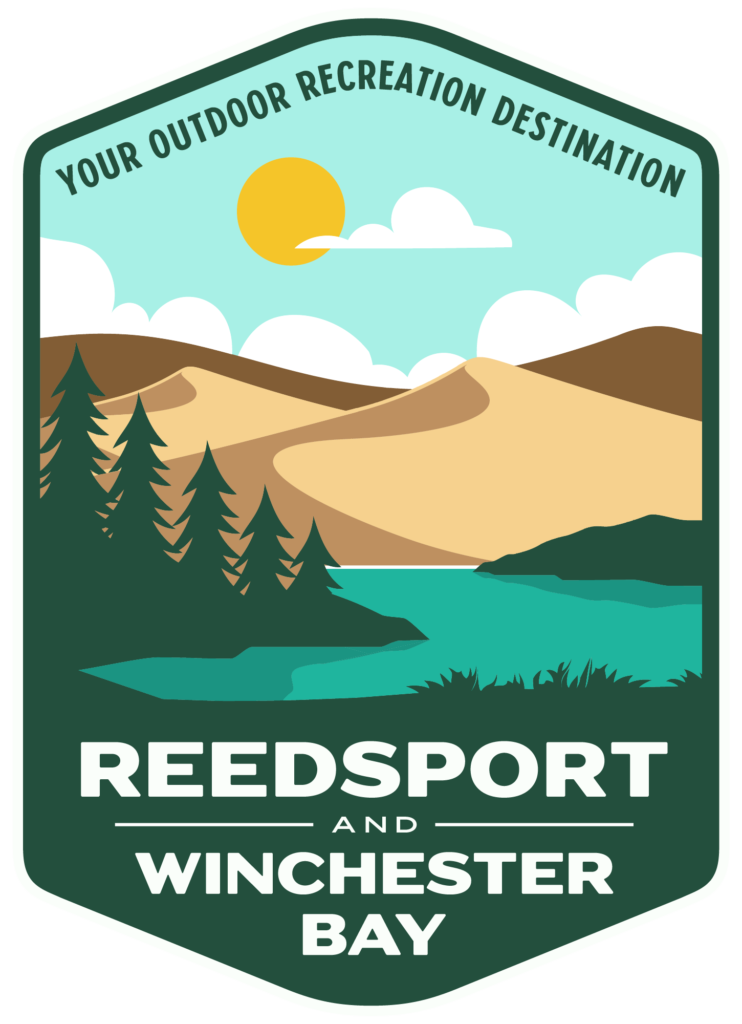Reedsport residents often hear the town referred to as the best kept secret in Oregon. That’s because there are so many amenities here that haven’t been discovered by the rest of the world. The area’s rich landscape is a cornucopia of outdoor adventure and tucked just a bit inland. Thus the wind is calmer here than in the neighboring communities of Florence and Coos Bay.
There are hiking trails, the dunes, 40 miles of accessible, uncrowded and undeveloped beach, fishing, boating, crabbing, kayaking, bird watching and much more. But the real difference between Reedsport/Winchester Bay and other small beach towns is the friendly people who make this place “the heart of the dunes.”
The first known settlers here were the Kuuich people. They chose the “neighborhood” for its natural abundance of salmon, lake fish, deer, elk, berries, crab, clams, oysters and mussels. Living on the banks of the Umpqua River (called Tsalila by the tribes) where it meets the ocean offered an endless buffet and a desirable climate.
In 1851 the first American ship crossed the Umpqua bar carrying the Umpqua Exploration Expedition. The vessel sailed as far as Scottsburg, platting town sites up and down the river in the hopes they would develop as gold seekers flocked to southern Oregon. In 1863 Scottsburg had 5,000 residents and was being considered as a site for the capitol of Oregon. Gardiner became a major shipping port in the late 1800’s. Reedsport then began to prosper when the first railroad came to the coast.
Businessman Alfred Reed saw the potential and moved his family here from Elkton, then known as Fort Umpqua. The gold rush of the 1800’s brought people to fill Reed’s town. By 1912 there was a post office, mercantile and builders who had their hands full since the river-area had a tendency to flood. Industrious carpenters built stilts as foundations for homes and businesses, raising the buildings above the mud and allowing the structures to sway with the waters. The riverfront was lined with fish processing plants. Ships pulled up to the docks downtown and unloaded thousands of pounds of tuna, cod and crab. Chinese and Japanese immigrants made their way up the coast and set to work cleaning and processing the fish. A fleet of boats ran from Winchester Bay to the ocean daily.
The woods were overflowing with “green gold” in terms of timber and logging, and good wages brought good living. Through the 1990’s while other beach communities turned to tourism, Reedsport/Winchester Bay remained timber oriented. Then changes in laws restricted logging and fishing. The canneries disappeared. Much of the commercial fishing fleet moved elsewhere. Mills shut their doors.
The community turned to tourism and building a lifestyle for both young families and retirement-age residents. The Umpqua Discovery Center was built to share our “secrets” with visitors. Downtown sidewalks were widened, vintage storefronts became eclectic shops, and visitors found this is a convenient and affordable base for exploration and discovery.

